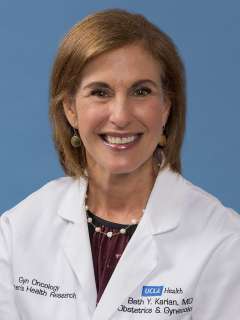Research Update
UCLA Launches HERSTORY to Improve Cancer Screening

Many studies have demonstrated that historically marginalized populations are less likely to undergo cancer screenings. More troubling, under-represented minority women (URM) are less likely to be offered or to have undergone genetic testing for inherited cancer risk. Accordingly, the benefits of broad pre-emptive germline genetic testing for cancer risk may have an even larger impact on the health of these populations.
Earlier this year UCLA and the Institute for Precision Health (IPH) launched HERSTORY – Hereditary Exploration and Research for Screening and Testing for Oncology Risks in Women - a multi-disciplinary prospective research study focused on understanding genetic, environmental, socio-economic, and other determinants of cancer in women with a family history of the disease, focusing primarily on URM women. Principal Investigators leading the project include Dr. Vivian Chang, Dr. Paul Boutros, and Dr. Beth Karlan (Gynecologic Oncology). Participants must be female, 35 or older, and our goal is to recruit at least 75% of the cohort from URM communities including African American/Black, African, Hispanic, Filipino, Alaskan, or Hawaiian Native among others. Participants also must have a family history of cancer as defined as cancer in one first or second degree relative. The study seeks to enroll 5000 women.
Women who qualify for the study will be able to access clinical and research genetic and genomic testing including germline sequencing, tumor testing when applicable, and other health-related tools. Participants may also enroll and donate samples to OBGYN’s high-quality tissue and blood specimen biorepository that will be used for future longitudinal studies.
“We believe this study will help us better understand barriers to cancer genetic testing in communities that have not had access to this important health information. This will in turn allow us to craft strategies that address cancer prevention and improve health outcomes in these populations,” said Dr. Beth Karlan, Professor and Vice Chair in UCLA OBGYN and a PI on the study.
For more information, contact [email protected].